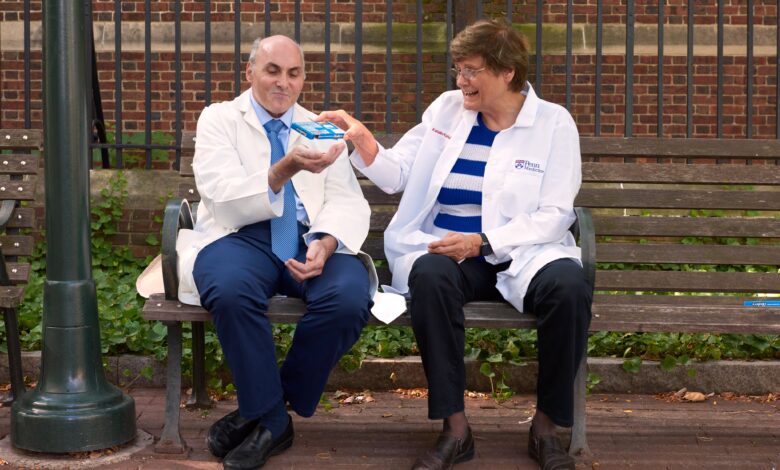Nobel Prize Awarded for Pioneering Work Enabling COVID-19 mRNA Vaccines

The Nobel Assembly at the Karolinska Institutet announced today that the 2023 Nobel Prize in Physiology or Medicine will be jointly awarded to Katalin Karikó and Drew Weissman for their groundbreaking discoveries related to nucleoside base modifications, which played a pivotal role in the development of highly effective mRNA vaccines against COVID-19.
The two distinguished Nobel Laureates, Katalin Karikó and Drew Weissman, have made remarkable contributions to the field of mRNA research, particularly in understanding how nucleoside base modifications can enable the production of mRNA vaccines that have revolutionized the global fight against the COVID-19 pandemic.
Their discoveries have had a profound impact on our understanding of how mRNA interacts with the immune system, and their work significantly accelerated the development of mRNA vaccines during one of the most challenging health crises in modern history.
Before the pandemic, traditional vaccines were based on weakened or inactivated viruses, often requiring large-scale cell culture for production. This resource-intensive process limited the rapid response to outbreaks and pandemics.
However, the introduction of mRNA technology in the 1980s, known as in vitro transcription, paved the way for a new approach to vaccine development. Katalin Karikó, a Hungarian biochemist, and Drew Weissman, an immunologist, embarked on a collaborative journey to harness the power of mRNA for therapy.
Their critical breakthrough came when they discovered that dendritic cells, a crucial component of the immune system, recognized in vitro transcribed mRNA as a foreign substance, leading to inflammation. They identified that modified bases in mRNA from mammalian cells played a key role in preventing this unwanted inflammatory response.
These findings, published in 2005, fundamentally changed our understanding of how cells recognize different forms of mRNA, providing the groundwork for the development of mRNA vaccines.
Subsequent studies in 2008 and 2010 demonstrated that incorporating base modifications into mRNA increased protein production and reduced inflammatory reactions, clearing significant obstacles for clinical applications of mRNA.
Fast forward to the COVID-19 pandemic, and two nucleoside base-modified mRNA vaccines, encoding the SARS-CoV-2 surface protein, were developed at record speed. These vaccines, with reported protective efficacy of around 95%, were approved in December 2020 and have since been administered worldwide, saving countless lives and allowing societies to reopen.
The Nobel Prize awarded to Katalin Karikó and Drew Weissman recognizes their pioneering contributions to mRNA technology, which not only enabled the rapid development of COVID-19 vaccines but also holds promise for future vaccines against other infectious diseases and potential therapeutic applications.
Their groundbreaking work exemplifies the significance of scientific innovation in addressing global health challenges.




